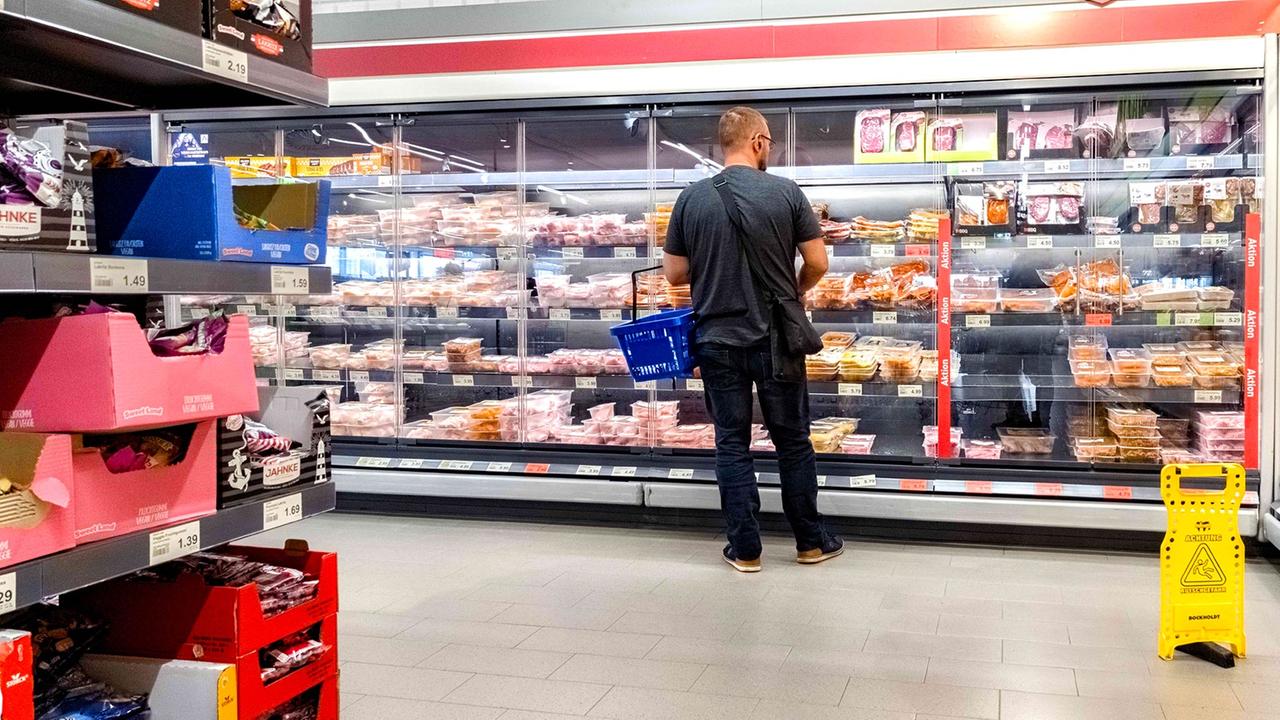Consumers are particularly noticing inflation in the supermarket. New data now shows how much food prices have risen since 2020 – and which products have become particularly expensive.
Food prices have increased by almost a third in the past three years. This is shown by a special analysis by the Federal Statistical Office for the period from January 2020 to May 2024.
In this longer-term view, the price increase for some foods is even more drastic: Sugar prices, for example, have risen by around 80 percent, flour and other grain products by around 50 percent. Potatoes are also almost 50 percent more expensive than at the beginning of 2020, and poultry is around 40 percent more expensive than at the beginning of 2020.
The prices of bread and rolls also rose by more than a third during this period. Whole milk became more expensive by almost 28 percent and coffee by almost 20 percent.
Price shock for olive oil
The price increase for olive oil is particularly drastic. According to statisticians, its price more than doubled between January 2020 and May 2024. The main reason is crop failures: According to the International Olive Association (IOC), global olive oil production has fallen from 3.42 million tonnes in the 2021/2022 harvest year to 2.57 million tonnes in 2022/2023. In the current year 2023/2024, the association expects a further decline to just 2.41 million tonnes.
The price has risen accordingly. Spanish consumers are experiencing even more significant price increases than German consumers. In Spain, which produces half of global consumption, prices have tripled since 2021. “This has never happened before,” said the chairman of the Spanish olive growers, Pedro Barato, recently. The Spanish government has even temporarily lifted VAT on olive oil for this reason. From July to September, no VAT will be charged at all, the government announced last week.
Olive farmers are suffering from the consequences of climate change. Currently, more than 90 percent of the world's olive oil comes from the Mediterranean region. According to climate researchers, this region is warming much faster than average. IOC boss Lillo said that the olive tree is one of the plants best adapted to drought. “But in extreme droughts, it activates protective mechanisms and no longer produces olives. Olives need a minimum of water.”
“Food must have a higher price”
Price pressure could remain high for the time being, especially for olive oil. Meanwhile, the president of the German Farmers' Association, Joachim Rukwied, recently appealed for understanding for higher food prices. He told the Redaktionsnetzwerk Deutschland (RND) last week: “Consumers must be aware that food from Germany, such as meat or sausage, is produced to higher standards than elsewhere. These foods must therefore also have a higher price.”
Germany needs “a social consensus that food from Germany cannot be taken for granted and must also have its value,” warned Rukwied. “Otherwise we will increasingly import food from abroad and further reduce regional, domestic agriculture.”




